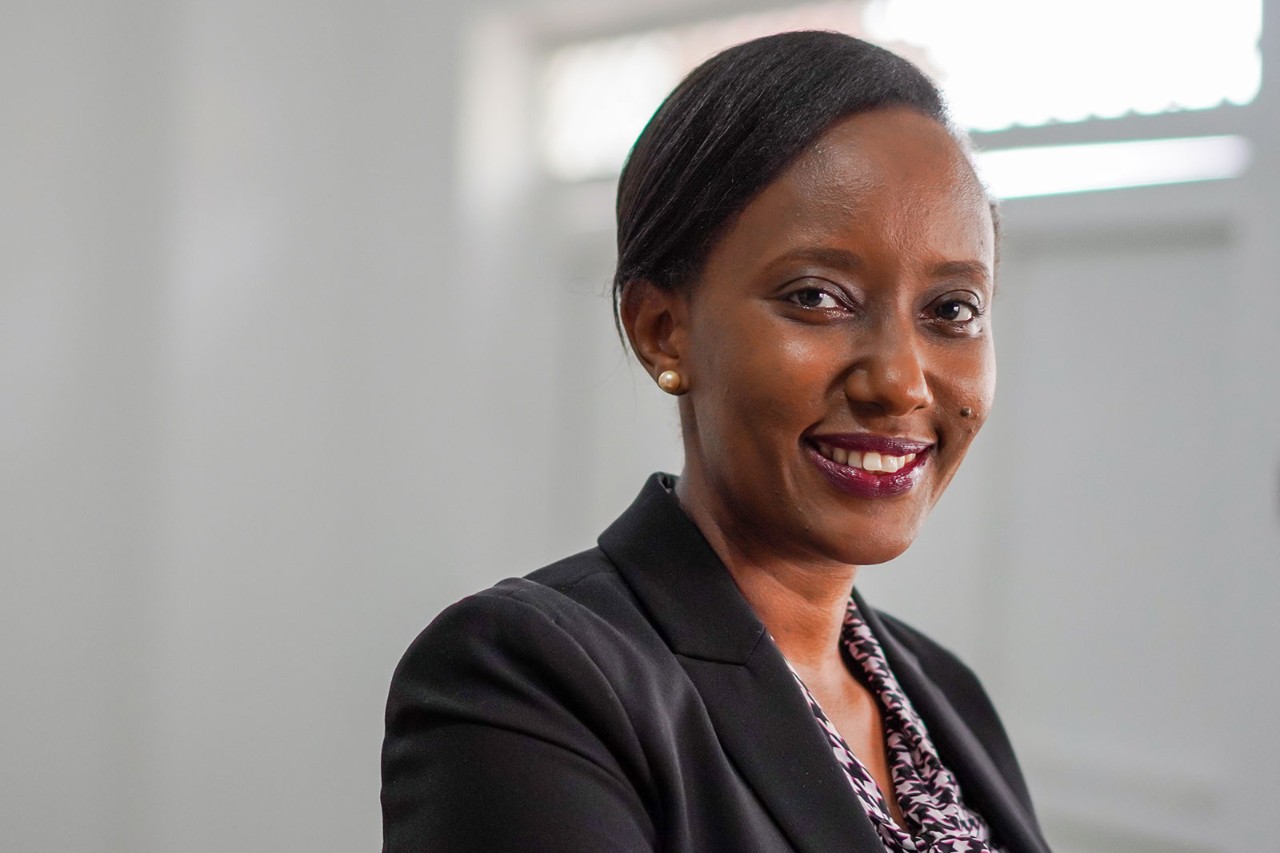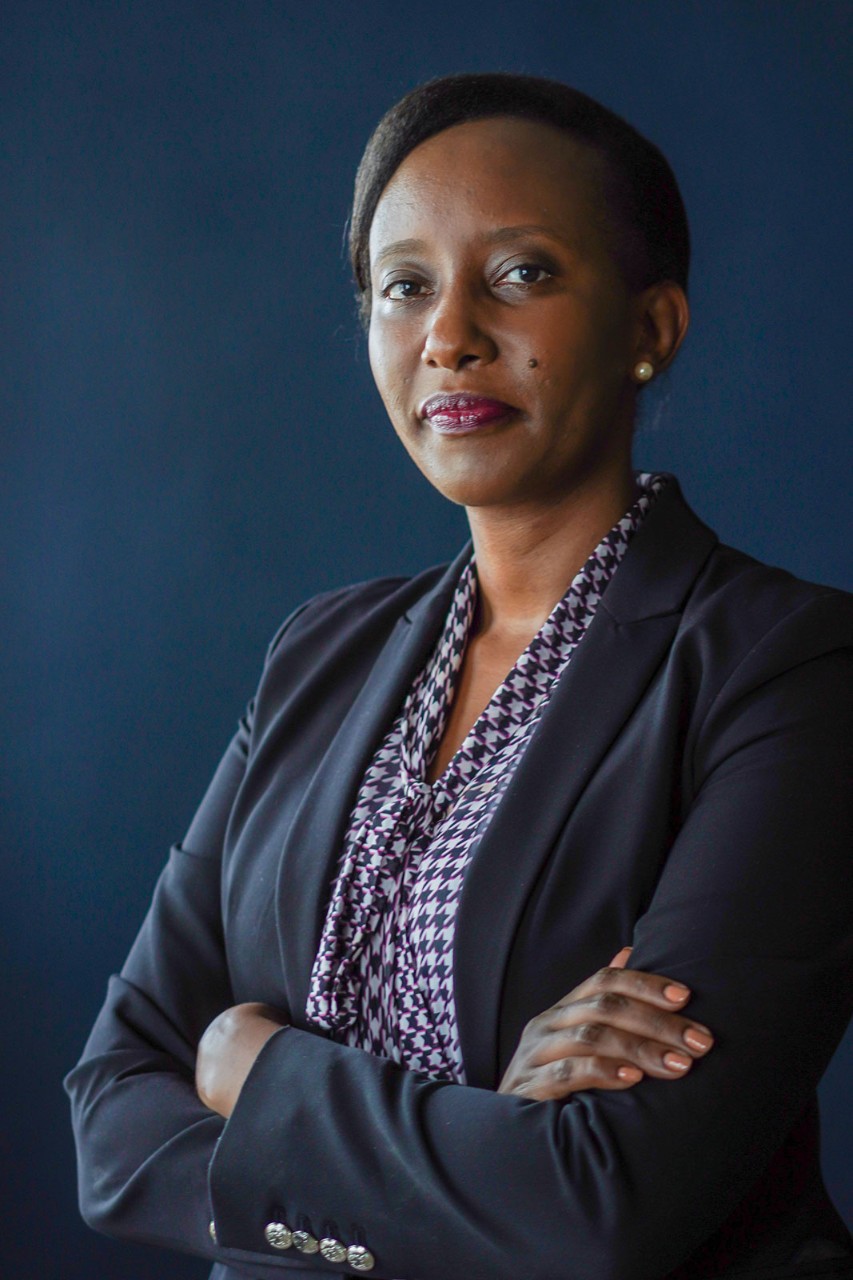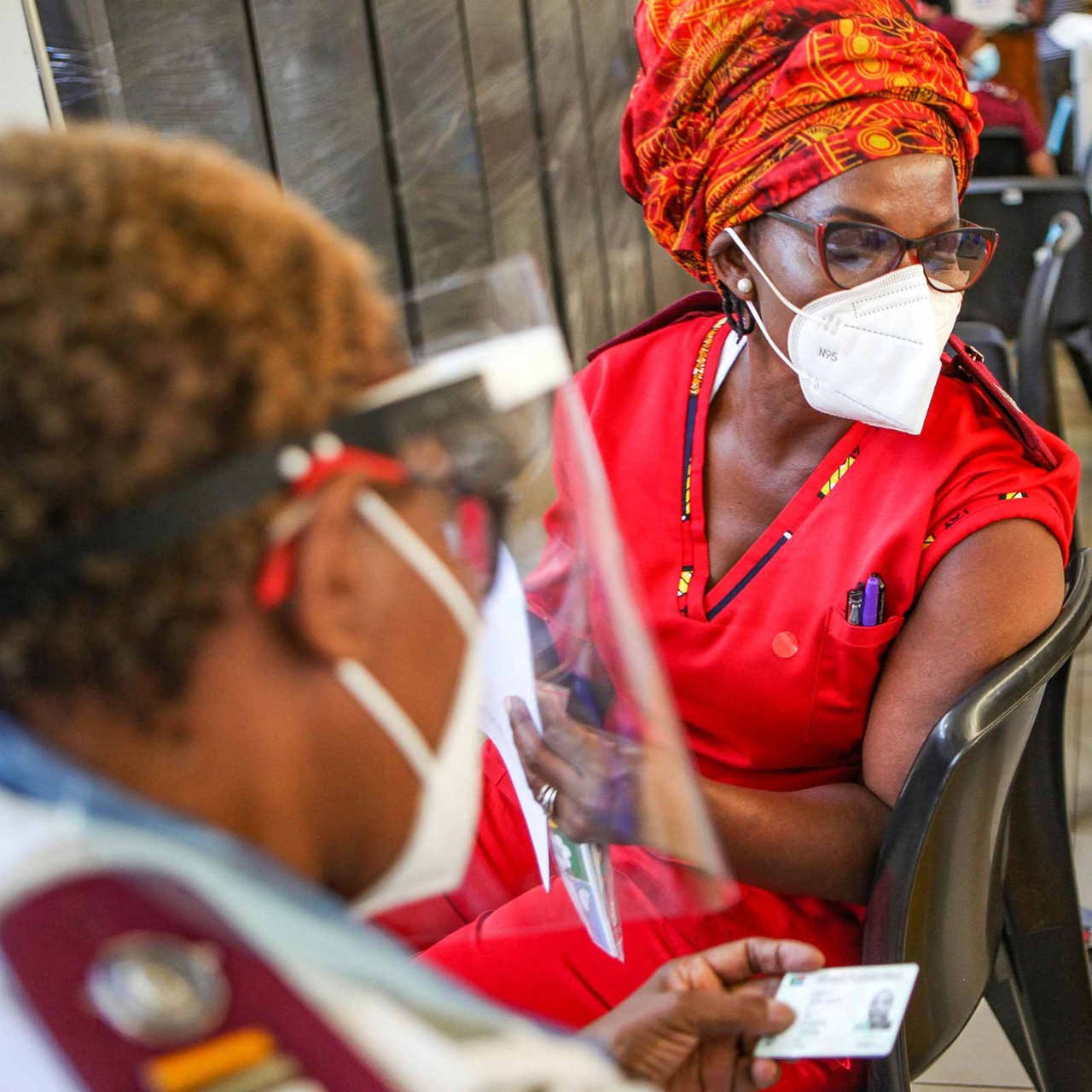
As executive director of financial stability at the National Bank of Rwanda (NBR), Peace Uwase FCCA is working hard to support her nation’s economy – even with the challenges posed by Covid-19.
The scope of her role at NBR is impressive. It encompasses micro-prudential supervision to ensure individual financial institutions – from banks to insurers – are adequately capitalised, have sufficient liquidity, are appropriately governed and have the necessary risk management functions and controls in place. If financial institutions do fail, Uwase and her team are responsible for ensuring an orderly resolution of the matter.
Her role also has a macro-prudential and market’s integrity perspective. ‘It involves identifying and tackling any potential systemic threats to Rwanda’s financial sector as well as adequacy of mitigants against money laundering and the financing of terrorism,’ she says.
It is exciting to be participating in a sector that is truly transformational in terms of economic development
CV
2016
Executive director of financial stability, National Bank of Rwanda
2010
Consultancy roles
2007
Country CFO, Ecobank Rwanda, then Ecobank Guinea Bissau
2005
Head of finance and administration, Bank of Commerce, Development and Industry
2001
Audit associate and senior, PwC Uganda
She adds: ‘The global response to money laundering and the financing of terrorism has been for global banks to cut their ties with a lot of banks in the developing world because of the perceived high risk. It’s therefore critical that we are seen to be vigilant so as to maintain the correspondent banking relationships that facilitate the crossborder payments that are critical drivers for global trade and developments in finance as well as flows of remittances.’
International standards
She also strives to ensure that Rwanda’s legal and regulatory framework meets international best practices, such as the Basel Core Principles for Effective Banking Supervision. Challenges do arise, however.
‘As much as we want to benchmark ourselves to the international best practices, many are complex and designed for more mature markets,’ Uwase says. ‘It’s a challenge to make them applicable to the local context, considering the stage of development of our markets and the availability of skilled staff both in the supervisory agency and the financial sector.’
Recruiting sufficiently skilled human resources isn’t easy, she notes. ‘To counter this, we are investing a lot in the development of our people – we encourage them to pursue professional qualifications, attach them to other more advanced regulatory bodies, and also bring in supervision experts from other jurisdictions as resident advisers to work closely with our staff on a day-to-day basis over the short to medium term in order to transfer skills and expertise.’
The rapid development of banking and financial services is a challenge in itself. ‘With the development of technology, we supervise a growing number of heterogenous institutions, and the diversity is an added complexity,’ Uwase says. ‘In the payment system space, for example, there are so many small institutions that offer a variety of services, such as electronic money issuers, remittance companies and aggregators.’
Covid effects
Covid-19 has had a major impact on Rwanda’s economy and on Uwase’s work. ‘For the 10-year period between 2009 and 2019, GDP grew by an average of 7.2% per annum,’ she says. In contrast, it contracted by 12.4% in Q2 2020 and by 3.6% in Q3, reflecting the impact of Covid-19 containment measures such as national lockdown, curfews, and social distancing restrictions on various premises and public transport.
NBR’s supervisory priorities have adjusted to reflect the increased credit risk within lending institutions. ‘It’s become a critical area of focus for us to ensure that banks are prudently assessing borrowers, adequately classifying loans and making sufficient provisions – and not postponing problems away into the future,’ Uwase says. Her team is also keeping a close eye on capital adequacy and liquidity ratios.
As elsewhere, remote working during the pandemic has increased the risk of cybersecurity issues and data privacy threats. ‘The financial sector is becoming increasingly digital in order to serve customers, so we need to ensure that systems such as internet and mobile banking, ATMs and points of sale, as well as core banking systems, are available as much as possible,’ Uwase says.
Like so many, she and her team have also had to work more remotely. ‘Our supervisory work usually involves going on site to institutions – reviewing documents, interviewing management and then coming out with an assessment,’ she says. ‘Of course, that hasn’t been possible. So our focus has been a lot more on requesting the electronic submission of reports and offsite analysis.
‘We do conduct meetings virtually, so we are still able to achieve the broad mandate of supervision, but without the face-to-face engagement.’ Uwase misses this aspect, and not just for social reasons. ‘Information is more easily or better shared in physical in-person settings that are not as rushed as online meetings that are sometimes interrupted by network downtime. Eye contact and body language are also useful in guiding supervisory judgment during meetings or interviews,’ she says.

Tips
‘When you are younger, choose places of work and positions that offer the greatest learning opportunities. Invest at least five to 10 years in becoming a master at something – Malcolm Gladwell’s 10,000-hour rule. Offer yourself for tasks in the workplace. Seek out challenges and don’t take the easy way out. Request feedback on areas for improvement and work on those. You will reap significant dividends later in your career.’
‘Be humble and willing to learn – from your superiors, your peers and your juniors. Treat every experience as a learning opportunity.’
‘Integrity, integrity, integrity.’
Accidental shift
Uwase’s career journey began in 2001 when she joined PwC in Uganda as an audit trainee. Her move from audit to banking (post-qualification in 2004) was serendipitous, however.
Having grown up in Uganda as the child of Rwandan refugees, when the time came in 2005 for her to return to her home country, the most attractive opportunity open to her was as head of finance and administration at the Bank of Commerce, Development and Industry (BCDI). Soon after she joined, however, BCDI was acquired by Ecobank.
Uwase remained with the organisation after the acquisition, initially as Ecobank’s country CFO in Rwanda and then in Guinea Bissau, based in the capital, Bissau. Having returned to Kigali, after a period as a consultant, she took up her current role at NBR in 2016.
Although banking was an accidental choice, Uwase finds great satisfaction and enjoyment from her role. ‘You look around the country and see projects that have been financed by banks in so many different sectors – hotels, energy, manufacturing, telecommunication, real estate,’ she says. ‘These companies employ many Rwandans, consume inputs from other local sectors, and pay their fair share of taxes. So it is exciting to be participating in a sector that is truly transformational in terms of economic development.’
Woman’s perspective
Given the imminence of International Women’s Day, it seems appropriate to ask Uwase about her experience as a woman in banking – a traditionally male arena in many parts of the world. Happily, her own experience has been ‘rewarding’, reflective of Rwanda’s impressive track record for gender equality at government levels.
‘Women represent 61% of Rwandan parliamentarians and around 55% of the cabinet,’ she explains. ‘Our constitution requires that either gender must be represented in any decision-making organ at no less than 30%. So in Rwanda, we have an environment that allows us to bring the whole of who we are – our experiences as women, our mind, our heart and our perspectives. The tone at the top at national level sets the tone for everything else. It’s critical for empowering women. The same trend is also taking hold in the private sector – today, 37% of bank CEOs are women.’
She encourages other young women to pursue their professional qualifications early, before competing demands of family life may arise. A wife and mother herself, Uwase advises: ‘If you start a family, don’t try to be a superwoman. Accept help from your partner, your community and paid help if you can afford it.
‘And in the workplace, don’t try to be macho or step on people’s feet to get along. Use your power as a woman – your intrinsic gifts to lead.’
National Bank of Rwanda
600
Number of financial institutions regulated by NBR (December 2020), made up of 16 banks, 13 pension schemes, 14 insurers, 457 microfinance institutions, 94 foreign currency dealers and remittance companies, and six non-deposit taking (lending only) institutions
FRw6.32trn (US$6.5bn)
Total assets
19.7%
Increase in financial institution assets year to December 2020
429
Number of employees




